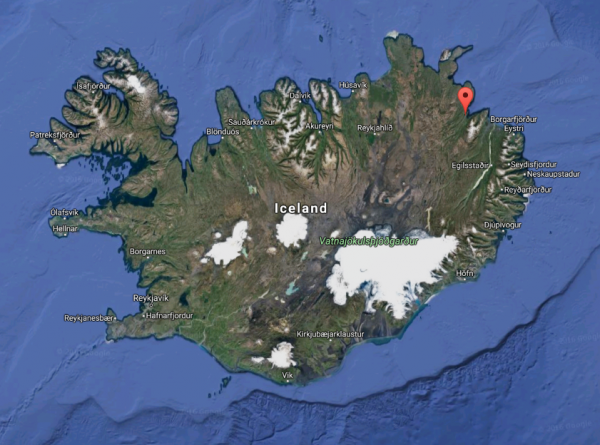A British billionaire, Jim Ratcliffe, the fifth richest man in Britain, has bought several farms in Vopnafjörður fjord in North East Iceland, making him one of the largest landowners in the area. The farms acquired by Ratcliffe all border was not to become a major landowner but to acquire fishing rights in one of the best salmon fishing rivers in Iceland, Hofsá river.

Ratcliffe is an avid fly fisher, and a frequent guest to the two salmon fishing rivers of Vopnafjörður, Hofsá and Selá. Ratcliffe also owns a stake in the angling club Strengur, which owns fishing rights in the two salmon fishing rivers in Vopnafjörður. In a statement to the Icelandic National Broadcasting Service RÚV, a spokesman for Ratcliffe explains that his goal is to protect the rivers and their salmon stock.
“Jim is committed to investing in conservation projects and has invested in property in Vopnafjörður to work with the existing landowners and inhabitants to conserve the unique environment that Vopnafjörður provides. He is proud and honoured to be able to play a part in protecting and preserving the Atlantic salmon stocks and fishing in the area.”
RÚV reports that in addition to the three farms, Síreksstaðir, Guðmundarstaðir and Háteigur, which Ratcliffe recently bought, 20 other farms in Vopnafjörður have been acquired by wealthy individuals who wish to acquire their fishing rights. Most are owned by Jóhannes Kristinsson, who was a prominent investor in Iceland during the Icelandic Financial Miracle. Jóhannes has been buying land around Iceland since prior to the financial crash of 2008.
According to RÚV farmers and other inhabitants in Vopnafjörður are happy with the new landowners, since they have not interfered with land-use by locals. The wealthy landowners have also been willing to rent out the land to local farmers, thus helping to maintain the traditional farming patterns in the region. Ratcliffe promises that he will continue to operate in this tradition,recognizing that “land and river are intimate, he intends to continue working with the farmers to maintain the agriculture of the area and the long term condition of the land.”
A British billionaire, Jim Ratcliffe, the fifth richest man in Britain, has bought several farms in Vopnafjörður fjord in North East Iceland, making him one of the largest landowners in the area. The farms acquired by Ratcliffe all border was not to become a major landowner but to acquire fishing rights in one of the best salmon fishing rivers in Iceland, Hofsá river.

Ratcliffe is an avid fly fisher, and a frequent guest to the two salmon fishing rivers of Vopnafjörður, Hofsá and Selá. Ratcliffe also owns a stake in the angling club Strengur, which owns fishing rights in the two salmon fishing rivers in Vopnafjörður. In a statement to the Icelandic National Broadcasting Service RÚV, a spokesman for Ratcliffe explains that his goal is to protect the rivers and their salmon stock.
“Jim is committed to investing in conservation projects and has invested in property in Vopnafjörður to work with the existing landowners and inhabitants to conserve the unique environment that Vopnafjörður provides. He is proud and honoured to be able to play a part in protecting and preserving the Atlantic salmon stocks and fishing in the area.”
RÚV reports that in addition to the three farms, Síreksstaðir, Guðmundarstaðir and Háteigur, which Ratcliffe recently bought, 20 other farms in Vopnafjörður have been acquired by wealthy individuals who wish to acquire their fishing rights. Most are owned by Jóhannes Kristinsson, who was a prominent investor in Iceland during the Icelandic Financial Miracle. Jóhannes has been buying land around Iceland since prior to the financial crash of 2008.
According to RÚV farmers and other inhabitants in Vopnafjörður are happy with the new landowners, since they have not interfered with land-use by locals. The wealthy landowners have also been willing to rent out the land to local farmers, thus helping to maintain the traditional farming patterns in the region. Ratcliffe promises that he will continue to operate in this tradition,recognizing that “land and river are intimate, he intends to continue working with the farmers to maintain the agriculture of the area and the long term condition of the land.”







